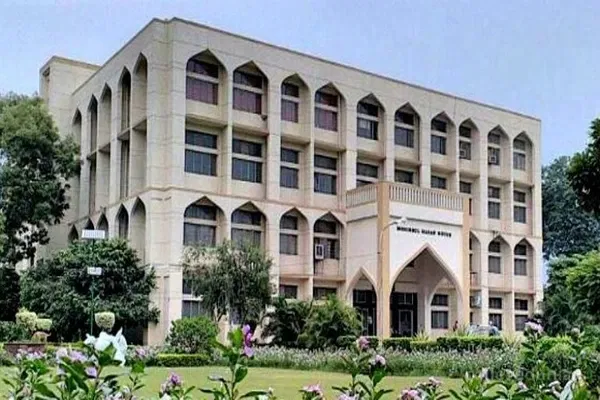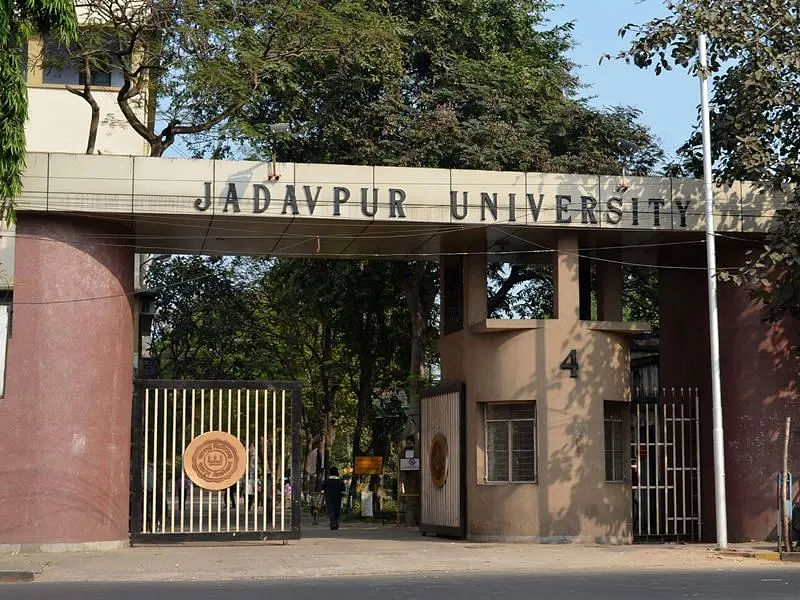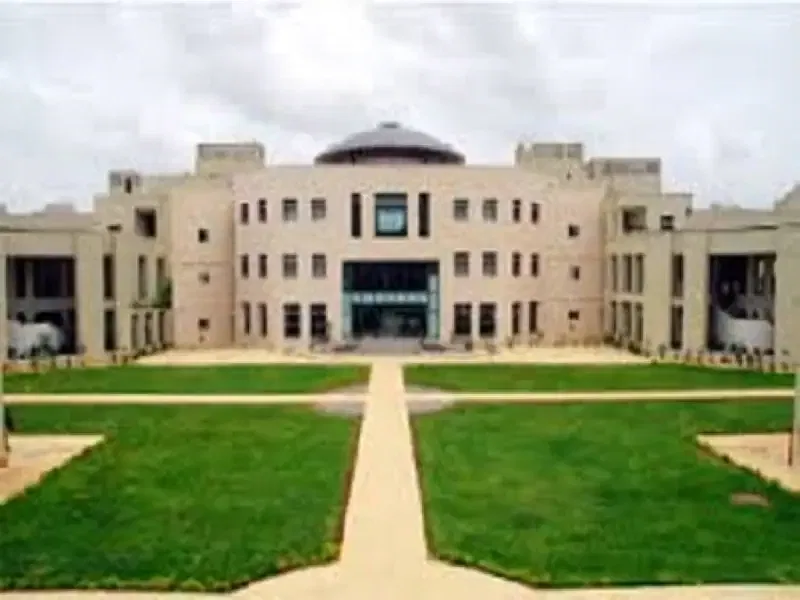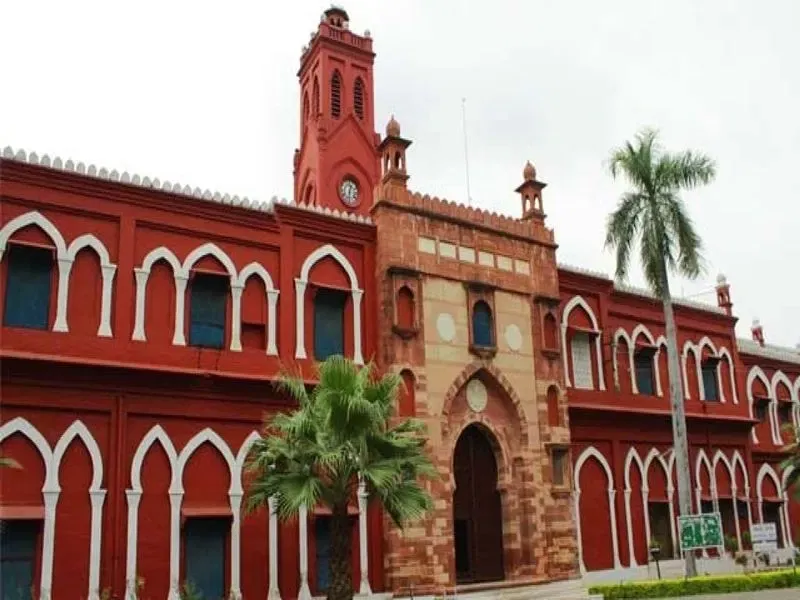MA Sociology Syllabus and Subjects: Semester-wise, Electives, Books

MA Sociology syllabus and subjects focus on studying Society and Human Action with various factors such as Family, Laws, Economics, and Religions governing them. MA Sociology is a 2-year postgraduate program divided into four semesters that explores social structures, relationships, and institutions. It develops critical thinking, research skills, and understanding of societal issues, preparing students for diverse careers.
The MA in Sociology syllabus is designed to provide a deep understanding of social theories, structures, and contemporary issues. It covers core subjects such as Classical and Contemporary Sociological Theory, Research Methodology, Sociology of Indian Society, and Social Stratification. Students also explore areas like Gender Studies, Urban Sociology, Sociology of Development, and Political Sociology.
The program emphasises both theoretical and practical knowledge, encouraging students to engage in critical thinking and independent research. To be eligible for admission to a Master of Arts (MA) in Sociology program, candidates must typically hold a bachelor’s degree in any discipline from a recognized university. However, preference is often given to students who have completed their undergraduate studies in sociology or related social sciences. A minimum aggregate score, usually around 50%, may be required, though this can vary depending on the institution.
Table of Contents:
- MA Sociology Syllabus Semester-Wise
- MA Sociology Subjects
- MA Sociology Course Structure
- MA Sociology Teaching Methodology and Techniques
- MA Sociology Projects
- MA Sociology Reference Books
MA Sociology Syllabus Semester-Wise
MA in Sociology curriculum delves into the study of society, including its structures and functions, as well as various aspects of human behaviour and action, such as politics, laws, and economics. Below is a breakdown of the MA in Sociology syllabus by semester.
MA Sociology First Year Syllabus Semester-Wise 2025
Below is a table of the MA 1st year Sociology Syllabus:
| MA Sociology Syllabus Semester I | |
| Classical Sociological Tradition | Methods of Sociological Research |
| Understanding Indian Society | Approach to Study in Indian Society |
| Classical Sociological Traditions: Marx, Durkheim and Weber | |
| MA Sociology Syllabus Semester II | |
| Sociology of Marginalized Community | Development of Sociological Thought |
| Urban Society in India | Social Change in India |
| Classical Sociological Traditions: Pareto, Cooley and Mead | |
MA Sociology Second Year Syllabus Semester-Wise 2025
Below is a table of the second-year syllabus for MA Sociology:
| MA Sociology Syllabus Semester III | |
| Contemporary Sociological Thought | Gender and Society |
| Modern Sociological Theory | Socio-Religious Movement in India |
| Sociology of Family, Kinship and Marriage | |
| MA Sociology Syllabus Semester IV | |
| Sociology of Industrial Relations | Sociological Theory |
| Data Collection and Analytical Procedures | Political Sociology |
| Dissertation | |
MA Sociology Subjects
Master of Arts in Sociology subjects focus on Sociological Thoughts, theories, and the development of society in India and the world. The M.A. Sociology subject list consists of core and elective subjects, which are in the list below:
MA Sociology Core Subjects
The MA Sociology subjects include a list of core subjects, which are listed below:
- Sociological theories
- Sociological Thoughts
- Sociology of Family, Kinship and Marriage
- Socio-Religious Movement in India
- Political Sociology
MA Sociology Elective Subjects
The MA in Sociology syllabus has elective courses that cover disciplinary topics and skill development listed below:
- Sociology of Health and Sanitation
- NGOs and Development
- Environment and Society in India
- Globalization and Society
- Media and Society
- Sociology of Information Society
MA Sociology Subjects In Detail
A complete table of the topics covered in the Sociology MA syllabus, including disciplinary issues and skill development, is given below.
|
MA Sociology Subjects |
Topics |
|
Modern Sociological Theories |
Sociological Theory, Relationship between Theory and Research, Functionalism, Intellectual Roots of Conflict Theory. |
|
Sociology of Family, Kinship and Marriage |
The Kinship System, Kinship organization in India, The Family and Change, The Marriage System. |
|
Human Rights and Society |
Human Rights and Duties, Human Rights and International Concerns, Human Rights and Duties in India, Human Rights and Constitution of India. |
|
Recent Trends in Sociological Theory |
Neo-functionalism and Neo-Marxism, Ethnomethodology and Phenomenology, Structure and Agency. |
|
Rural Development In India |
Rural Development, Planning and Management, Rural Development Programmes in India, Major Problems in Rural Development. |
MA Sociology Course Structure
In general, the MA Sociology syllabus consists of core subjects that focus on important theories and thoughts, electives which focus on discipline or skill-based courses, research work and seminars. To sum it up, the course structure is:
- Core Subjects
- Elective Subjects
- Research Work
- Seminars
MA Sociology Teaching Methodology and Techniques
The Sociology MA syllabus uses a variety of teaching strategies listed below to teach the subject effectively. Some of these methods combine conventional classroom lectures with interactive sessions. Listed below are some of the teaching methods in the MA Sociology syllabus:
- Classroom Lectures
- Guest Lecture
- Case studies/ Research work
- Surveys
MA Sociology Projects
The project of the MA Sociology syllabus is known as the dissertation, which a candidate has to prepare in the second year. The projects are based on evaluating the candidate’s knowledge and serve as a module for future theses. Given below are the project topics for the MA in Sociology syllabus:
- Supportive Movement And Skilled Development In UP & WB States.
- Impact Of Co-operative Financing In Rural Development.
- The Effect Of Night Shift On The Life Of The Indian Police Officer.
- Teachers' Ratings Of Behavioural Problems Of Pupils In Public Primary Schools.
MA Sociology University-wise Syllabus Comparison
Check out the university-wise syllabus for MA Sociology below.
MA Sociology DU Syllabus
Listed below is the year-wise syllabus of the MA Sociology for DU.
| MA Sociology DU University Syllabus Year 1 | |
| Religion and Society | Sociology of Kinship |
| Sociological Theories | Sociological Theory: Some Conceptual Issues |
| MA Sociology DU University Syllabus Year 2 | |
| Methods of Sociological Research | Social Stratification |
| Sociology of Development | Sociology of Symbolism |
MA Sociology IGNOU Syllabus
Listed below is the year-wise syllabus for MA Sociology for IGNOU.
| MA Sociology IGNOU Syllabus Year 1 | |
| Sociological Theories and Concepts | Research Methodologies and Methods |
| Sociology of Development | Sociology in India |
| MA Sociology IGNOU Syllabus Year 2 | |
| Sociology of Education | Diaspora and Transnational Communities |
| Sociology of Religion | Urban Sociology |
| India: Democracy and Development | Decentralisation and Local Governance |
MA Sociology Career Prospects
An MA in Sociology opens up diverse and rewarding career paths, providing graduates with the opportunity to analyse, address, and influence various social issues and dynamics. Below are some promising job profiles for MA Sociology graduates, along with their job descriptions and average salaries:
|
Name |
Job Description |
Average Annual Salary |
|
Sociologist |
Conducts research to study social trends, behaviors, and structures. Analyses data, publishes findings, and may contribute to policy development. |
INR 5 LPA |
|
Social Worker |
Provides direct assistance and support to individuals and communities facing social challenges. Offers counselling, advocacy, and referrals to services. |
INR 2 LPA |
|
Counselor |
Offers counselling services based on an understanding of community dynamics. |
INR 2.3 LPA |
|
PR Executive |
Utilises knowledge of civilisations and societies to work as a Public Relations Executive. |
INR 3 LPA |
|
Journalist |
Pursues a career in journalism, leveraging their expertise in societal issues. |
INR 3 LPA |
|
Research Analyst |
Gathers and analyses data, conducts surveys, and prepares reports to assist organisations and policymakers in understanding and addressing social issues. |
INR 3.4 LPA |
|
Policy Analyst |
Evaluates and formulates public policies, often with a focus on social welfare, by conducting research, analysing data, and making policy recommendations. |
INR 9.73 LPA |
|
Nonprofit Program Manager |
Manages programs and initiatives for nonprofit organisations, overseeing budgets, staff, and implementation to achieve social impact and goals. |
INR 11.7 LPA |
|
Human Resources Specialist |
Assists organisations in managing employee relations, diversity and inclusion programs, and social responsibility initiatives. |
INR 6.5 LPA |
|
Market Research Analyst |
Studies consumer behaviour and market trends to help businesses make informed decisions regarding product development and marketing strategies. |
INR 5.2 LPA |
|
Academic Researcher/ Professor |
Engages in teaching, academic research, and publishing scholarly work in sociology, often within a university or college setting. |
INR 15 LPA |
|
Community Organizer |
Mobilizes communities to address social issues, advocate for change, and promote community development and engagement. |
INR 5.43 LPA |
MA Sociology Future Scope
The future scope of an MA in Sociology is bright, offering strong prospects for both advanced studies and diverse career opportunities. Here are four key aspects that highlight its potential:
-
Further Academic Pursuits: Many graduates opt to continue their education with a Ph.D. in Sociology or related disciplines. A doctoral degree paves the way for academic roles, in-depth research, and expertise in specialised areas of sociology.
-
Wide Career Opportunities: An MA in Sociology equips students with a versatile skill set that can be applied across various sectors, including social research, policy analysis, social work, human resources, non-profit management, and counselling.
-
Growing Societal Demand: There is increasing demand for professionals who can critically analyse and address complex societal challenges, particularly in fields such as social justice, diversity and inclusion, and public policy. Graduates are valued for their analytical thinking and strong research capabilities.
-
Diverse Employment Sectors: MA Sociology graduates are employed in a variety of settings, such as government agencies, NGOS, research organisations, educational institutions, corporations, and healthcare systems. They play a crucial role in policy development, community engagement, and social service initiatives.
MA Sociology Reference Books
The table below lists the MA Sociology books and authors.
|
Name |
Author |
|
Sociology |
C. N. Shankar Rao |
|
Sociology |
Haralambus |
|
Indian Sociological Thought |
B. K. Nagla |
|
Indian Society |
M. Senthil Kumar, S Rijesh |
|
Sociological Theory |
George Ritzer |
Top MA Sociology Colleges
Top Arts Entrance Exams
MA Sociology Fee Structure
FAQs on MA Sociology Syllabus and Subjects
Q: Can I do PhD after MA in sociology?
If you aim to become an Assistant or Associate Professor at a college or university after completing your MA in Sociology, you can appear for the National Eligibility Test (NET) or the State Eligibility Test (SET). Qualifying these exams makes you eligible for teaching positions. Alternatively, pursuing a PhD or M.Phil. in Sociology can also open the path to teaching at the college level.
Q: Is PG in sociology good?
While pursuing a bachelor's or master's degree in sociology, students engage in various research projects to deepen their understanding of social issues, test sociological theories, and apply data analysis to develop improved models of societal development. These research experiences not only enhance analytical and critical thinking skills but can also lead to significant career advancement—graduates may see an average salary increase of around 58%, with potential growth reaching up to 400% depending on their role, industry, and level of expertise.
Q: What is the government exam after MA in Sociology?
There are many options, such as UPSC, State PCs, UGC net, PhD entrance, MPhil entrance, and more.
Q: What is the average fee for the MA Sociology course?
Fees vary by institution. In government colleges, it may be INR 5,000 - 20,000 per year; private universities may charge INR 30,000 - 1,00,000 or more annually.
Q: Is distance learning available for MA Sociology?
Yes, universities like IGNOU and others offer MA Sociology through distance mode, which is UGC-recognized.
























